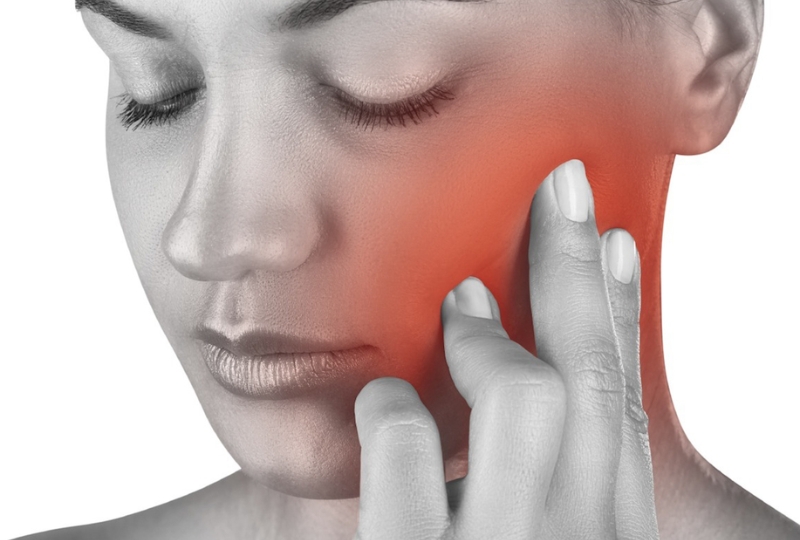
November 14, 2023, By Virginia TMJ Facial Pain and Sleep Center
Temporomandibular joint disorder, commonly known as TMJ, is a condition that affects the hinge joint connecting your jaw to your skull. It can lead to various symptoms, often causing discomfort and pain. If you live in Glen Allen and are experiencing any of the signs mentioned in this article, it may be time to consult a TMJ specialist to address the issue. In this blog, we will discuss the top 6 signs that indicate the need to see a TMJ specialist and why it’s essential to seek professional help for this condition.
1: Chronic Jaw Pain
One of the most common signs of a TMJ disorder is chronic jaw pain. If you experience persistent pain in your jaw, it can affect your ability to eat, speak, and even yawn comfortably. The pain may vary in intensity, from mild discomfort to severe, debilitating pain that can radiate to your face, neck, and shoulders. Consulting a TMJ specialist can help identify the underlying causes of your jaw pain and provide effective treatment options.
2: Frequent Headaches
Frequent headaches, particularly tension headaches, can be another indication of a TMJ disorder. When the jaw joint is not functioning correctly, it can lead to muscle tension and discomfort that radiates to the temples and forehead. If you’ve been experiencing persistent headaches that don’t respond well to typical headache remedies, it’s worth considering the possibility that your TMJ may be the culprit.
3: Clicking or Popping Sounds in the jaw
A clicking or popping sound when you open and close your mouth can be a sign of TMJ disorder. This noise occurs when the jaw joint isn’t moving smoothly. It can be accompanied by a feeling of the jaw getting stuck or locked in an open or closed position. If you notice these sounds or sensations, it’s advisable to consult a TMJ specialist to prevent the condition from worsening.
4: Difficulty in Opening or Closing Your Mouth
Another sign of a potential TMJ disorder is difficulty in opening or closing your mouth. This limitation in jaw movement can be accompanied by pain or discomfort, making it challenging to perform everyday activities like eating or speaking. If you find yourself struggling with these basic functions, seeking professional help from a TMJ specialist is crucial.
5: Facial Pain or Ear Discomfort
TMJ disorders often manifest as pain in the face, particularly around the ears. This can be accompanied by a feeling of fullness or pressure in the ears. If you’re experiencing unexplained facial pain or discomfort, especially in the area near your ears, consulting with a TMJ specialist is crucial. They can conduct a thorough examination to determine if the symptoms are related to TMJ issues and recommend appropriate treatment options.
6: Ear Pain and Ringing
TMJ disorders can sometimes cause referred pain, which means the discomfort can be felt in areas other than the jaw. Ear pain and ringing in the ears (tinnitus) are two such symptoms. Suppose you’ve been experiencing unexplained ear pain or tinnitus and haven’t found relief through traditional ear-related treatments. In that case, it’s a good idea to consult a TMJ specialist to explore the possibility of a jaw-related issue.
Suppose you’re living in Glen Allen and experiencing chronic jaw pain, frequent headaches, clicking or popping sounds in the jaw, difficulty in opening or closing your mouth, or unexplained ear pain and ringing. In that case, it’s time to see a TMJ specialist. These signs may indicate a TMJ disorder, a condition that can significantly impact your daily life. Early diagnosis and treatment are key to managing this condition effectively and regaining your quality of life. Don’t hesitate to reach out to a TMJ specialist and take the first step toward a pain-free future.
FAQs:
Q. What causes TMJ disorders?
A – TMJ disorders can be caused by a variety of factors, including jaw injuries, arthritis, teeth grinding, and stress. A TMJ specialist can help determine the underlying cause of your condition.
Q. Can TMJ disorders resolve on their own?
A – In some cases, mild TMJ symptoms may improve with self-care, such as applying heat or cold packs and avoiding hard or chewy foods. However, if your symptoms persist or worsen, it’s essential to seek professional treatment.
Q. How is TMJ disorder treated?
A – TMJ treatment options vary depending on the severity of the condition. They may include lifestyle changes, physical therapy, medication, or, in more severe cases, surgery. A TMJ specialist will tailor the treatment plan to your specific needs.
Q. Are TMJ disorders common?
A – TMJ disorders affect a significant number of people, and their prevalence is on the rise. It’s essential to be aware of the signs and symptoms and seek timely help to manage the condition effectively.
Q. What should I expect during my first visit to a TMJ specialist?
A – During your first visit, the TMJ specialist will conduct a thorough evaluation, which may include a physical examination, medical history review, and imaging tests. Based on their findings, they will recommend an appropriate treatment plan.
